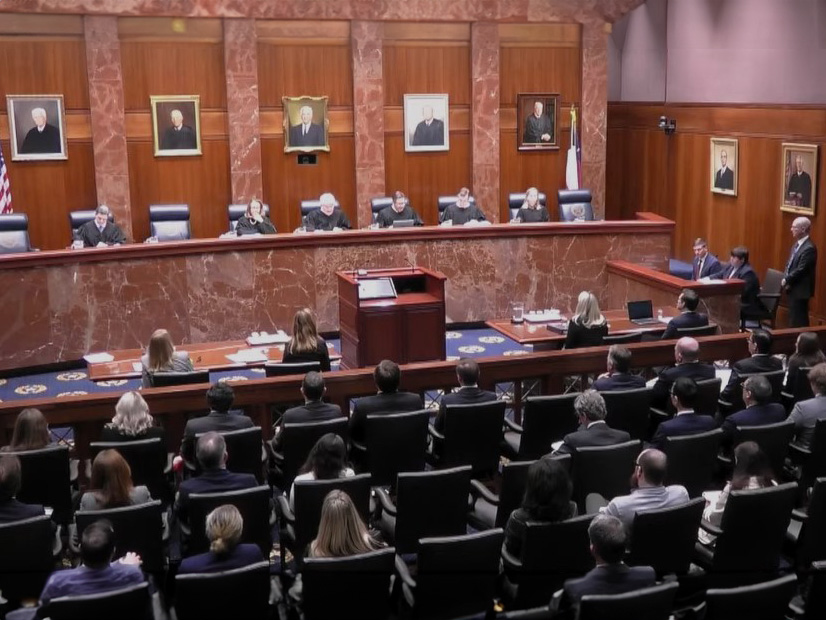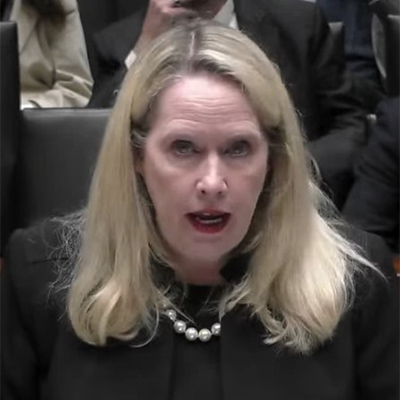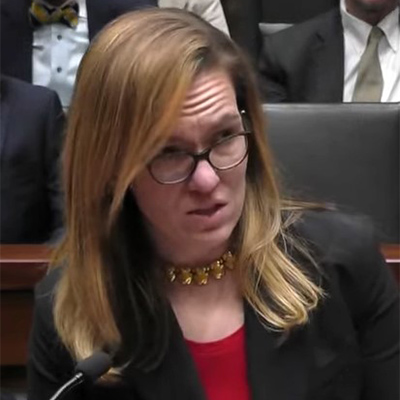
The Texas Supreme Court heard oral arguments Jan. 30 over whether the state’s Public Utility Commission had the authority to order electric prices be set at $9,000/MWh during the 2021 winter storm or whether billions of dollars in market transactions need to be repriced (23-0231).
Attorneys for the PUC and several market participants said state rules make it clear the commission’s top priority is the Texas grid’s reliability. Legal counsel for Luminant, the state’s largest generator, countered that the PUC exceeded its authority with the emergency pricing order.
When the PUC issued its directive to ERCOT on Feb. 15, 2021, as generation was dropping off during the storm, the grid operator’s algorithm was setting prices as low as $1,200/MWh. Under ERCOT’s market construct, prices are designed to increase during scarce conditions to incentivize more generation to come online.
The problem was, there wasn’t enough generation during the first two days of the storm because of frozen equipment or lack of fuel supplies. ERCOT kept prices at the $9,000 cap — since reduced to $5,000 — until Feb. 19, resorting to rolling blackouts to keep the grid stabilized.
“Is it really your position that [the PUC’s commissioners] are tied to the mast of competition in a way that prevents them from taking that action, if we are in a world where it actually is the case that they just have to commandeer the market for a while to make sure we’re not in the Stone Ages for a few weeks?” Justice Jimmy Blacklock asked Gibson, Dunn & Crutcher partner Allyson Ho, who represented Luminant.
Ho said the state’s Public Utility Regulatory Act prohibited the commission from setting prices by “regulatory fiat.”
“The agency did the one thing that the [Texas] Legislature expressly said it could not do, and that is set prices,” Ho said.
Earlier this year, Texas lawmakers attempted to fix the loophole with House Bill 1500. The legislation includes a section that requires the commission to issue a written order when directing ERCOT to take certain actions.
Lanora Pettit, a lawyer with the Texas Attorney General’s office, said “the authority existed at the time” to order ERCOT to raise prices in trying to stabilize the grid. She said the PUC’s message to ERCOT was “that your algorithm’s not working the way it’s supposed to, so please go fix it and get in line with the rules we’ve already established.”
“The understanding of everybody in the market was that [$9,000/MWh] was the price that when load was being lost, that would be charged,” Pettit said. “What happened here was not an amendment to that rule, but instead of direction to ERCOT.”
Ho responded for Luminant, saying the order did little to bring more generation online because all plants that could run in the frigid conditions already were doing so.
Luminant initiated the proceeding after it incurred $1.6 billion in losses when forced to buy backup power at the system cap and gas supplies at equally exorbitant prices. (See Vistra’s Winter Storm Loss Deepens to $1.6B.)
The company won a surprise judgment from the 3rd Court of Appeals in March when it reversed the PUC’s emergency orders. The court found the commission’s actions “entirely” eliminated competition and were contrary to state law. (See Texas Court Reverses PUC’s Uri Market Orders.)
The state Supreme Court in September agreed to review the appeals court’s ruling. (See Texas High Court to Review Decision on Uri Charges.)
The emergency order resulted in $16 billion of market transactions that ERCOT’s Independent Market Monitor said were incorrectly priced during the 33 hours that followed the end of firm load shed. The PUC declined to reprice the transactions. (See “Monitor: $16B ERCOT Overcharge,” ERCOT Board Cuts Ties with Magness.)
Some of the $16 billion balance has since been securitized, and some participants have been paying off debts they now might not even owe. Other transactions have been settled outside ERCOT and can’t be undone, according to legal experts.
Two of the Supreme Court’s justices recused themselves from the proceeding. A third was absent. A decision is not expected to be rendered for several months, but the high court normally issues judgments on all proceedings it takes up. Its current term ends June 28.





